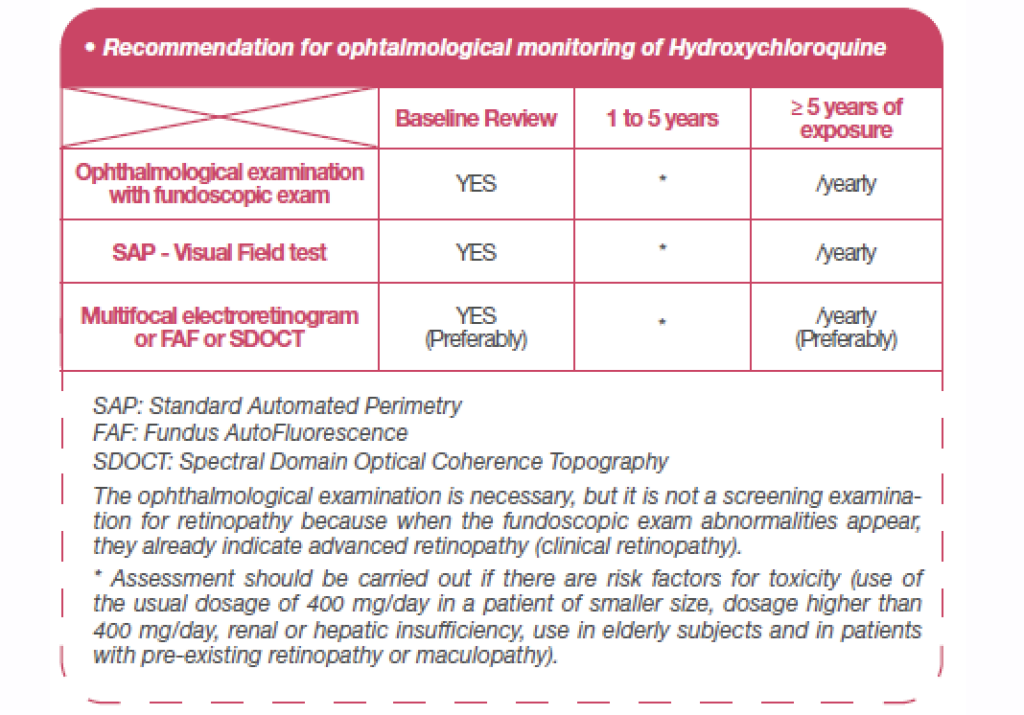Hydroxychloroquine/chloroquine is a well-tolerated drug. Hydroxychloroquine is recommended at a dose not exceeding 5 mg/kg of real body weight over a long period of treatment to reduce ocular side effects. When lupus is active, a higher dose, not exceeding 6.5 mg/kg of regular weight, can be required (for patients weighing more than 80 kg, a maximum daily dose of 400 mg is recommended in SLE).
Contraindications, noted in the summary of product characteristics, include a history of retinal disease and known hypersensitivity to antimalarials.
Desensitisation can be effective in case of an allergic reaction. Hydroxychloroquine can be maintained during breastfeeding without any worries. Remember that pregnancy and breastfeeding are not a cause for stopping treatment.
The history of retinopathy (damage to the retina which is the membrane at the back of the eye allowing vision) remains the only absolute contraindication for adult lupus patients. Monitoring of hydroxychloroquine/chloroquine treatment aims to prevent the onset of its potential adverse effects. The most problematic side effect is its potential impact on the retina (retinopathy).
The incidence of this complication is low in clinical practice. No or little toxicity was found in several thousand subjects with rheumatic disease treated with Hydroxychloroquine.
Recommendations for ophthalmological monitoring of hydroxychloroquine are given in the adjacent table.

Other side effects of hydroxychloroquine are digestive disorders, which are often transient or disappear with the reduction of the dosage.
There is a very low risk of a decrease in white blood cells, which however justifies carrying out a blood count (most often integrated into the usual monitoring of lupus).
Finally, it is preferable to do an electrocardiogram (ECG), before and after taking hydroxychloroquine, to check for any impact on cardiac conduction, but this risk is exceptional.
The determination of the blood concentration of hydroxychloroquine (hydroxychloroquinemia) is increasingly used in common practice. It makes it possible to know if hydroxychloroquine is taken as it should be, as its elimination from the blood is very long. It also simplifies the adaptation of the hydroxychloroquine dose to the individual.
Hydroxychloroquine / chloroquine is a well-tolerated drug, with only one absolute contraindication: the history of retinopathy for adult lupus patients. Ophthalmological monitoring is recommended.
It should be emphasised that pregnancy is not anymore a cause for interruption of this treatment.